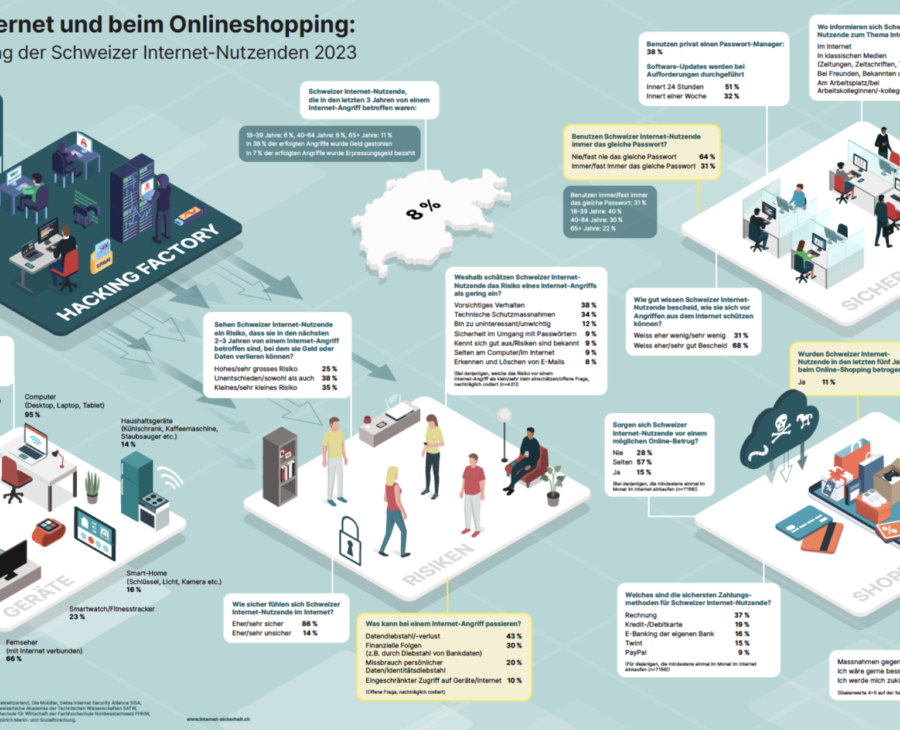Digital transformation is here to stay. We must therefore constantly foster dialogue to increase awareness for all that is and will become digital. Digitalisation brings not only opportunities, but also risks that need to be addressed and taken seriously. In my series “Dialogue Interviews” I discuss these topics with leaders in Switzerland, from our member organisations to digital shapers and the brightest minds in the fields of technology and innovation.
In this edition, I talked to Philipp Metzger, Director General of the Federal Office of Communications (OFCOM).
Nicolas: Mr. Metzger, you have been Director General of the OFCOM since 2014 and lead the Swiss Government’s Digital Switzerland Strategy and Digital Action Plan. In February 2020, you’re moving on to take up a new professional challenge. Before you go, please would you share some insights into the progress of the initiative in the first two years since it was launched?
Mr. Metzger: The national ‘Digital Switzerland’ conference, which was organised by the Swiss Confederation, took place on 2 September 2019 in Basel and discussed many of our achievement so far. It was also a chance to take stock of where we stand and consider where we’re heading.
In his opening speech, Ueli Maurer, President of the Swiss Confederation, emphasised Switzerland’s leading position in fintech and blockchain, thanks to our forward-looking regulation. He set this as a benchmark for future endeavours. He also noted the creation of the Cyber Security Center and the appointment of a Cyber Security Delegate, while acknowledging that a lot remains to be done in this area to increase confidence in digitalisation in Switzerland. Federal Councillor Simonetta Sommaruga focused on the package of measures to support the media sector, especially online media, which will be submitted to Parliament in 2020. We need to redefine the framework conditions to enable the media to continue to play their pivotal role in our democracy as our environment becomes increasingly digital.
Nicolas: And what are some of the highlights so far, in your view?
One highlight in the implementation of the strategy has to be the analysis led by the State Secretariat for Education, Research and Innovation in the field of artificial intelligence. The results of this work are expected to be available before the end of 2019 and will include consideration of measures to be undertaken in this area.
Elsewhere, the State Secretariat for Economic Affairs (SECO) is evaluating legislation relevant to economic policy to identify provisions that unnecessarily hamper digitalisation, or that are redundant as a result of digital development. Having surveyed a broad range of business associations, trade unions, companies and consumer protection organisations in the context of a ‘Digital Test’ survey, SECO has found that legal requirements hinder a wide range of transactions in a digital business environment. These requirements will now be reviewed and revised with a view to facilitating the further development of the digital economy.
Last but not least, the Federal Department of Foreign Affairs has launched the digital self-determination network. Its aim is to examine the social, legal, regulatory and technical prerequisites to strengthen people’s digital self-determination. As far as possible, citizens should be able to decide for themselves who may use their data and for what purpose. A first use case in the field of mobility should demonstrate how the different actors organise their cooperation in order to ensure a free, self-determined and trustworthy data exchange between all participants.
Nicolas: The IMD Worldwide Digital Competitiveness Index ranks Switzerland at number 37 in terms of e-participation and 36 for starting a business. Both domains depend on the Swiss government and the cantons. What can we do to improve our position in the next 2-3 years?
Mr. Metzger: The IMD World Digital Competitiveness Index 2019 measures e-participation in terms of governments’ use of online services to facilitate provision of information to citizens (e-government), interaction with stakeholders (e-consultation), and engagement in decision-making processes (e-voting).
In e-government, various measures are currently being taken in Switzerland to further develop the system. In a shared project, stakeholders are currently working on solutions to help the Confederation, the cantons and the municipalities manage and coordinate their digitalisation activities, initiatives and projects more effectively. The current structures are not designed to meet the requirements of a digital society (changing demands in society, competition between locations, speed, etc.). This contributes to increasingly complex and inefficient coordination and control of digital activities. In addition, the Federal Chancellery is in the process of preparing a report on compliance with procedural requests from Parliament regarding more efficient consultation procedures and the opportunities of civic tech. Furthermore, the Federal Council wants to promote participation and innovation by publishing the data of the federal offices; this would make administrative data freely available to the economy for use in applications such as the creation of new business models. The use of open administrative data is the main objective of the second Open Government Data Strategy (2019 – 2023) adopted by the Federal Council in November 2018.
The Federal Council has also taken an important decision in the area of e-voting. It has commissioned the Federal Chancellery to work with the cantons by the end of 2020 to devise a reorientation of the trial operation and to present it in a report.
As for start-ups, there is progress with regard to the financing aspect. According to the Swiss Venture Capital Report, the capital invested has quadrupled since 2012 and so have the financing rounds for Swiss start-ups. The areas with the most investment are ICT solutions for the business sector and life sciences. In fintech, Switzerland is a leader. The Global Entrepreneurship Monitor, which has been investigating entrepreneurial activities and their impact on national economies worldwide for twenty years, also shows good framework conditions for start-ups in Switzerland (Switzerland is ranked third after the USA and the Netherlands). There is scope, though, to better exploit potential in terms of entrepreneurial activity.
Nicolas: As general question, in which digital and innovation areas do you see Switzerland having a leading position worldwide in 3-5 years?
Mr. Metzger: Switzerland will continue to lead in the areas of fintech and blockchain by promoting digitalisation of the financial sector with appropriate regulation. In December 2018, the Federal Council adopted a report by the State Secretariat for International Finance SIF on the legal framework for blockchain and distributed ledger technology (DLT) in the financial sector. The emphasis is on creating the best possible framework conditions so that Switzerland can establish and further develop its position as a leading, innovative and sustainable location for fintech and DLT companies. Healthcare is another area in which Switzerland could blaze a trail in the future – if we succeed in making optimum use of the advantages of new technologies, artificial intelligence and robotics. This includes rapid automated collection of health-relevant information, extracting new insights from the systematic evaluation of this information and making treatment-relevant information available at the right time and place.






